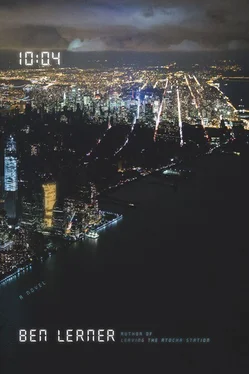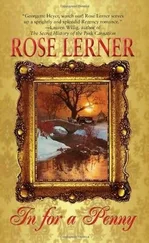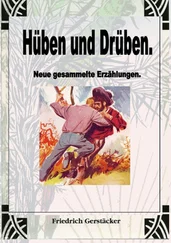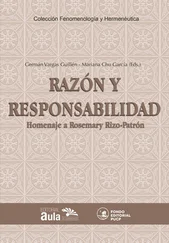“They need a highly liquid strategy,” someone at the adjacent table said.
“What happens if I give them a totally different book than the one described in the proposal?” I asked. Small plates of miso-glazed black cod were put before us. Someone refilled my glass.
“Depends. If they like it, fine. But you need to keep the New Yorker story in there, I think.”
“I can’t see my audience because of the tungsten lights.” I emptied my glass.
“Do you have other ideas?”
“They got married on Turtle Island. Fiji. Karen said she saw Jay-Z on the beach.”
“A beautiful young half-Lebanese conceptual artist and sexual athlete committed to radical Arab politics is told by her mother, who is dying of breast cancer, that she’s been lied to about her paternity: her real father turns out to be a conservative professor of Jewish studies at Harvard. Or New Paltz. Wanting her own child, she selects a Lebanese sperm donor in an effort to project into the future the past she never had.” I shook my head no. Swift, Spanish-speaking laborers took away the plates. “Or maybe something more sci-fi: an author changes into an octopus. He travels back and forth in time. On a decommissioned train.”
She excused herself to go to the bathroom and the next small blue bottle was on the table so quickly it seemed to precede my signaling to the waitress, my ordering it. I shut my eyes for a long moment. “Perfume and youth course through me, and I am their wake.” The noise was deafening now that I wasn’t talking or listening to anyone in particular. I tasted hints of pear, then peach. For a second all I heard was the desperation, the hysterical energy of passengers on a doomed liner. The rise and fall. The laughter of Mrs. Meacham’s class. My parents were dead, but I could get back to them in time. Seventy-three seconds into takeoff, my aorta dissected, producing high cirrus clouds, sign of an imminent tropical depression.
“That market’s completely underwater. Probably forever.”
I looked at my phone. “Your presence is requested at the Institute for Totaled Art,” Alena had texted.
Dessert was a yuzu frozen soufflé with poached plums. Money was a kind of poetry. The glasses of sweet wine were on the house. I was drunk enough now to down the remaining sake instead of setting it aside. The ink contains a substance that dulls the sense of smell, making the octopus more difficult to track.
“How exactly will you expand the story?” she asked, far look in her eyes because she was calculating tip.
“Like the princess in Sans Soleil , I’ll make a long list of things that quicken the heart.” We emerged from the restaurant into moving air. “And you can be on it.” The streets were wet, but it wasn’t raining now. We walked to the High Line entrance on Twenty-sixth and climbed the steps. The smell of viburnum, which either flowers in winter or had flowered prematurely, mixed with the smell of car exhaust.
“I’m going to write a novel that dissolves into a poem about how the small-scale transformations of the erotic must be harnessed by the political.” Three-fifths of my neurons were in my arms as I touched each stand of sumac carefully placed among the disused rails. Never again would I eat octopus.
“My advice, having sold some other proposals, is not to wait too long.” Now we were sitting on the wooden steps that overlook Tenth Avenue, liquid ruby and sapphire of traffic. “I mean, to get to work. The more you wait, the more the deadline looms. It can drive people crazy.” She lit a cigarette. “The residency is perfect timing. Don’t underestimate how much you can get done in those five weeks.”
I was leaving in two days. A foundation in Marfa, Texas, gives you a house, a stipend, a car. I’d accepted the offer almost a year ago, when I knew I’d be on leave from teaching, but not that I had a dilated aortic root or that there was acute demand for my abnormal sperm. I’d never done a residency or been to Texas. It was where Creeley died in the spring of 2005—they had rushed him to the nearest hospital three hours away in Odessa. My little house would be across the street from his. “I hope there will be another occasion soon to be in each other’s company,” I’d written in his voice to a version of myself.
I felt like a ghost in the green hybrid, driving slowly around Marfa in the dark. It was my first night there: Michael, the caretaker of the residency houses, who was also a painter, had picked me up at the El Paso airport that afternoon and driven me in amicable silence for three hours through the high desert until we reached the little house at 308 North Plateau Street; I remember the address (you can drag the “pegman” icon onto the Google map and walk around the neighborhood on Street View, floating above yourself like a ghost; I’m doing that in a separate window now) because I had to have my beta-blockers mailed there twice during the residency, pills I take to reduce the vigor of my heart’s contractions, and which have the paradoxical effect of causing a minor tremor in my hand. When I arrived at the house — one floor, two bedrooms, with one room converted to a writer’s studio, no internal doors — I had set down my bags and, although it was only late afternoon, gone immediately to bed, not waking until a little before midnight. I lay in the alien sheets slowly remembering where I was: having slept through most of the ride, and then what was left of the daylight, I felt as though I’d moved from Brooklyn to the Chihuahuan Desert without transition. I tried to remember the light snow that morning in New York, beads of precipitation on the oval window streaking as the plane took off. It was Thursday; had I been at home, I would have heard the sound of the poor picking glass out of the recycling set along the street for Friday morning. Here it was quiet enough that I should have heard my heart beating; I imagined it was inaudible because of the drug.
I’d planned to walk around, not drive, but the dark outside was total. I was stunned by the panoramic sky, the impossible number of stars — any remaining jet lag dissipated at the sight. The thin winter air was cool but unseasonably warm; it was probably in the forties. The sound of the garage door opening tore a hole in the night and I sensed, whether or not they were there, small animals fleeing all around me at the noise. I backed out of the garage, remotely closed it, and began to whisper through the streets, as nervous and alive as a teenager sneaking out on some kind of furtive mission in his parents’ car. I found my way downtown and circled the nineteenth-century courthouse and turned onto the town’s main commercial street; no one was out. I parked under a streetlight and walked past the dark storefronts, a mixture of small-town municipal offices, abandoned spaces, and upscale boutiques. Marfa had been an “art tourism” destination ever since Donald Judd established the Chinati Foundation in the eighties, a museum just outside of town that presents Judd’s large-scale works in permanent installation, along with work by his contemporaries. I’d heard New York artists speak of making pilgrimages, that collectors fly down for visits in their private jets, but it was difficult to picture encountering them here. An interesting building across the street attracted my attention and I crossed to take a closer look; later I would learn it was the old Marfa Wool and Mohair Building. I walked around the side of the building, along the railroad tracks, and, stepping over various desert shrubs, approached one of the side windows to look in.
At first I saw nothing through the glass, then slowly made out hulking shapes, shapes that further resolved into what looked like giant flowers of crushed metal or perpetual explosions. I cupped my hands around my eyes and held my forehead to the cool window and slowly recognized what I was seeing as a series of John Chamberlain sculptures, which are largely hewn from chrome-plated and painted steel, often the mangled bodies of cars, an art of the totaled. I’d seen a few of his sculptures in New York, had been indifferent, but they were powerful now, their colors becoming more discernible in the faint glow of some kind of security light. Maybe I liked his sculpture more when I couldn’t get close to it, had to see it from a fixed position through a pane of glass, so that I had to project myself into the encounter with its three-dimensionality. I stepped back a little and regarded his work through my own faint reflection in the window. Or maybe I like his sculpture more when I’m lurking at night among creosote bushes in the desert, nerves singing, my life in Brooklyn eighteen hours in the past, receding.
Читать дальше










